 ENTERTAINMENT
ENTERTAINMENT20 Years of 'Brokeback Mountain' and Its Lasting Impact on Queer Cinema
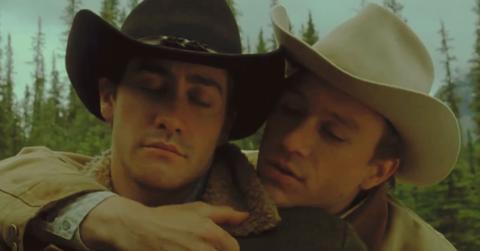
'Brokeback Mountain' still stands as a powerful love story that reshaped queer representation in Hollywood.
Oct. 4 2025, Published 6:00 a.m. ET
It's been 20 years since Jack Twist and Ennis Del Mar first forged a bond while herding sheep on Brokeback Mountain. The film, directed by Ang Lee and based on Annie Proulx's 1997 short story, forever changed the course of queer American cinema.
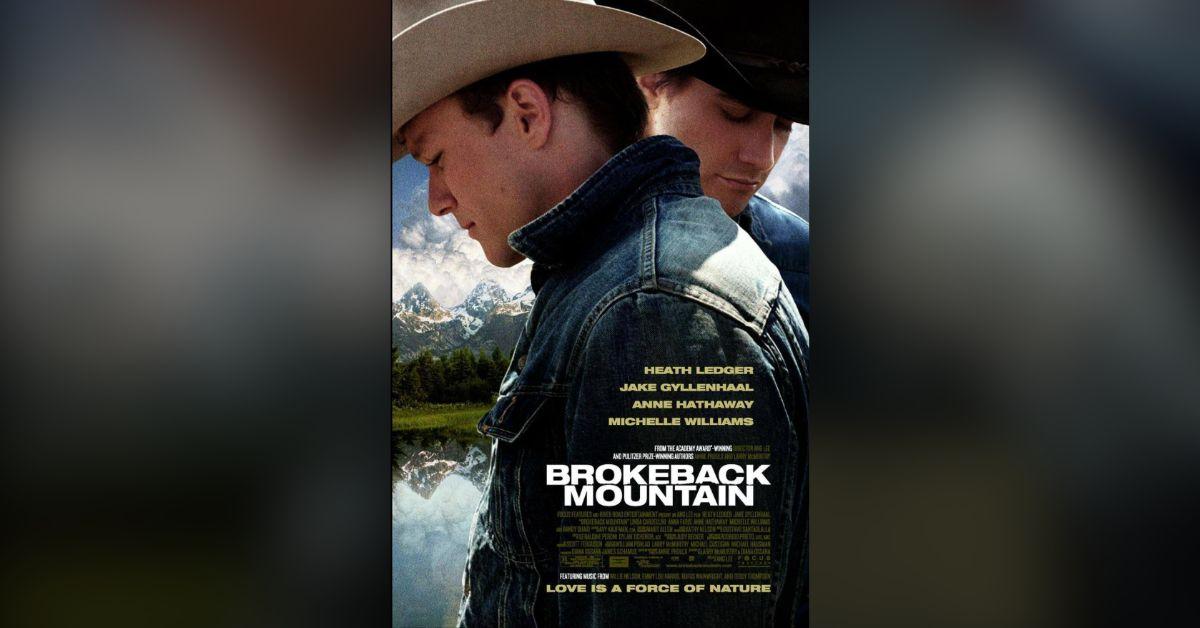
'Brokeback Mountain' marks its 20th anniversary this year.
Lee firmly believes Brokeback Mountain is "uniquely, and universally, a great American love story." The film's profound themes of love and loss resonated through its delicate portrayal of two young men navigating their feelings in 1963 Wyoming. Initially labeled merely as the "gay cowboy movie," it ultimately garnered over $178 million at the global box office, earning its place as a landmark classic.
However, the film's journey to recognition faced immense challenges filled with backlash and homophobia. As it returns to theaters amid ongoing threats to LGBTQ rights, its legacy has never felt more poignant.
"Biases might disappear when you look into the heart of people. I hope that's the case with our love story," Lee reflected on the film's enduring message.
With eight Academy Award nominations, including Best Picture, Brokeback Mountain secured three wins for Best Director, adapted screenplay, and Gustavo Santaolalla's haunting score. The Academy wouldn't embrace a queer love story again until Moonlight claimed Best Picture in 2017.
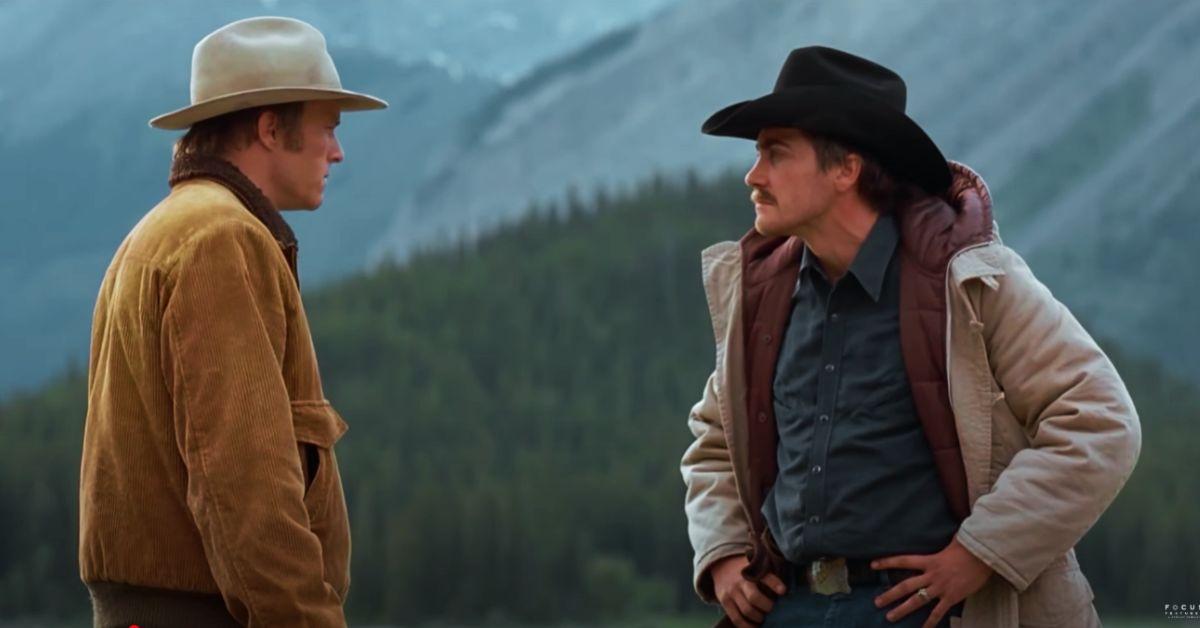
'Brokeback Mountain' was often dubbed a 'gay cowboy movie.'
While attitudes towards queer representation have undoubtedly progressed, many argue that casting two heterosexual men in the lead roles today might not resonate the same way. Nonetheless, the film continues to receive critical acclaim.
"I'm really happy that Ang was able to make the movie with Heath and Jake. He made an incredible story," casting director Avy Kaufman told TheWrap. "It didn't matter. He made a beautiful film."
The film's cultural significance is evident, as GLAAD's Raina Deerwater noted. "The fact that it was so lauded, the fact that it was a big moment in culture, I think is really important. You never know which films are going to reach so many people, and Brokeback Mountain really did."
Brokeback Mountain not only represents a pivotal moment for Focus Features but also marked a turning point for Gyllenhaal, Michelle Williams and Anne Hathaway. For the late Ledger, who received a posthumous Oscar for his role in The Dark Knight, it remains one of his most powerful performances.
Screenwriter Diana Ossana started her journey with Brokeback Mountain after reading Proulx's short story in 1997. The narrative's emotional depth compelled her to collaborate with the late Larry McMurtry to adapt it into a screenplay.
"When I think about the power of narratives, books and films, Brokeback has that power," Ossana explained. "It has the power to move people, to make them rethink their preconceived notions about things. If I were to tell you the single word that I think exemplifies the story — and it's something that we have very little of right now — it's compassion."
Want OK! each day? Sign up here!
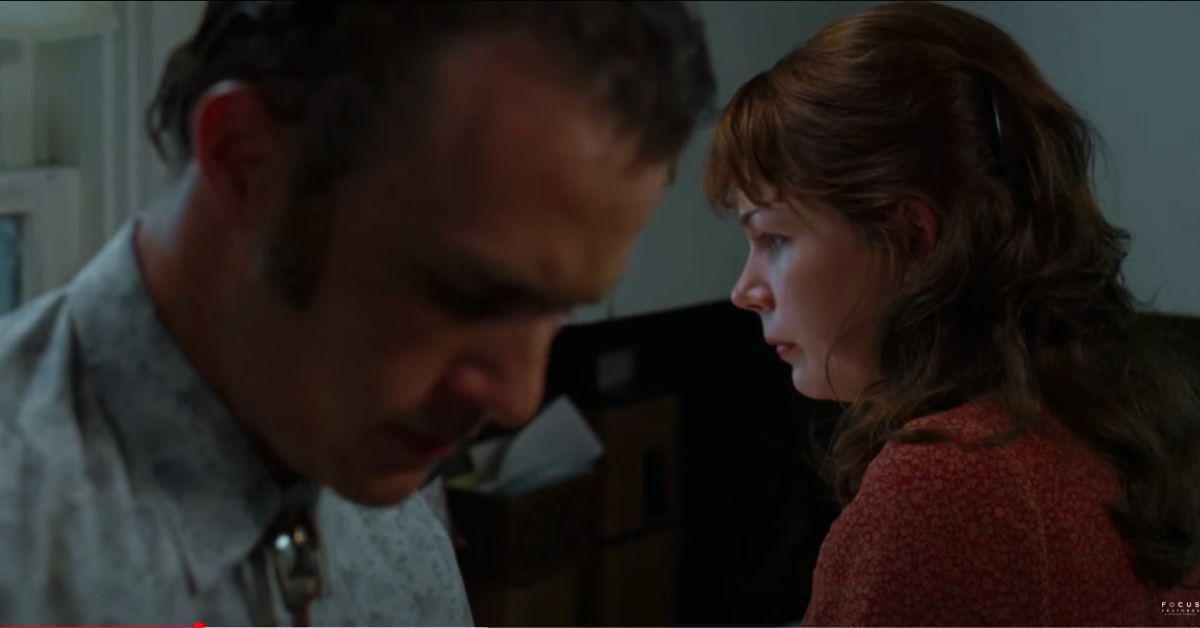
Heath Ledger and Michelle Williams met while filming 'Brokeback Mountain' and began a relationship soon after.
Despite her unwavering commitment, Ossana and McMurtry faced years of difficulty securing a director and cast willing to tackle such sensitive material. "Somebody asked me last week, 'Why were you so relentless about getting this film made? Why didn't you give up?'" Ossana reflected. "I couldn't quit the story or the characters. They got me, and they got me good."
Today's re-release of Brokeback Mountain confronts a period of societal regression, with the film representing a sanctuary for Jack and Ennis amidst an unforgiving world. Current events, including potential reversals of same-sex marriage protections, highlight the importance of the film's message.
"Human nature doesn't change," Ossana stated. "The mores and the values and the rules and the laws may shift and change, but our wants and needs are the same."
Critics have scrutinized the casting of two straight actors, Gyllenhaal and Ledger, to portray Jack and Ennis, with Kaufman noting, "I think today would have been a very different story."
The casting director now prioritizes LGBTQ identification when casting similar narratives. Despite the advancements in queer representation, Kaufman acknowledged that Brokeback Mountain was groundbreaking in its own right.
The film's quintessentially American setting — the vast, picturesque West — solidified its status as a cultural milestone. "It posed a reflection on the U.S. past and the place of the Western in America's fantasies," said Gary Needham, author of Brokeback Mountain (American Indies).
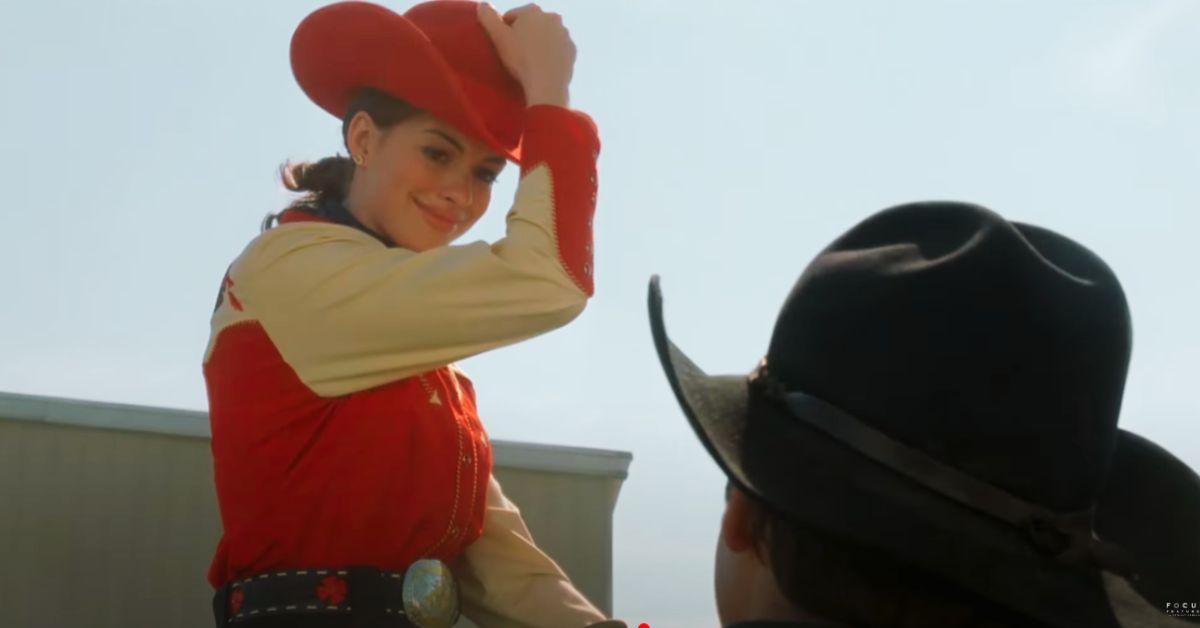
Anne Hathaway played Lureen Newsome, the wife of Jake Gyllenhaal’s character.
For many, Brokeback Mountain is more than just a film; it serves as a lens through which audiences can relate to the characters' love and loss. GLAAD's Deerwater remembered the jokes surrounding the film when it first released. "If you look at the actual film, everyone who was on the production team stood behind it. They refused to make fun of it," she shared.
Two decades later, Jack's tragic demise remains difficult to digest. While the hardships faced by LGBTQ+ individuals continue, Roush emphasizes the importance of balancing historical context with representations of queer joy. "There's a real value to knowing what happened to people," he noted.
Ultimately, Brokeback Mountain played a crucial role in paving the way for more hopeful narratives in LGBTQ+ cinema.
"A lot of films now end on a much more positive note," Roush explained. "It gives you an ending that doesn't feel as historically negative, and I think that is a reflection of the shift in society."


